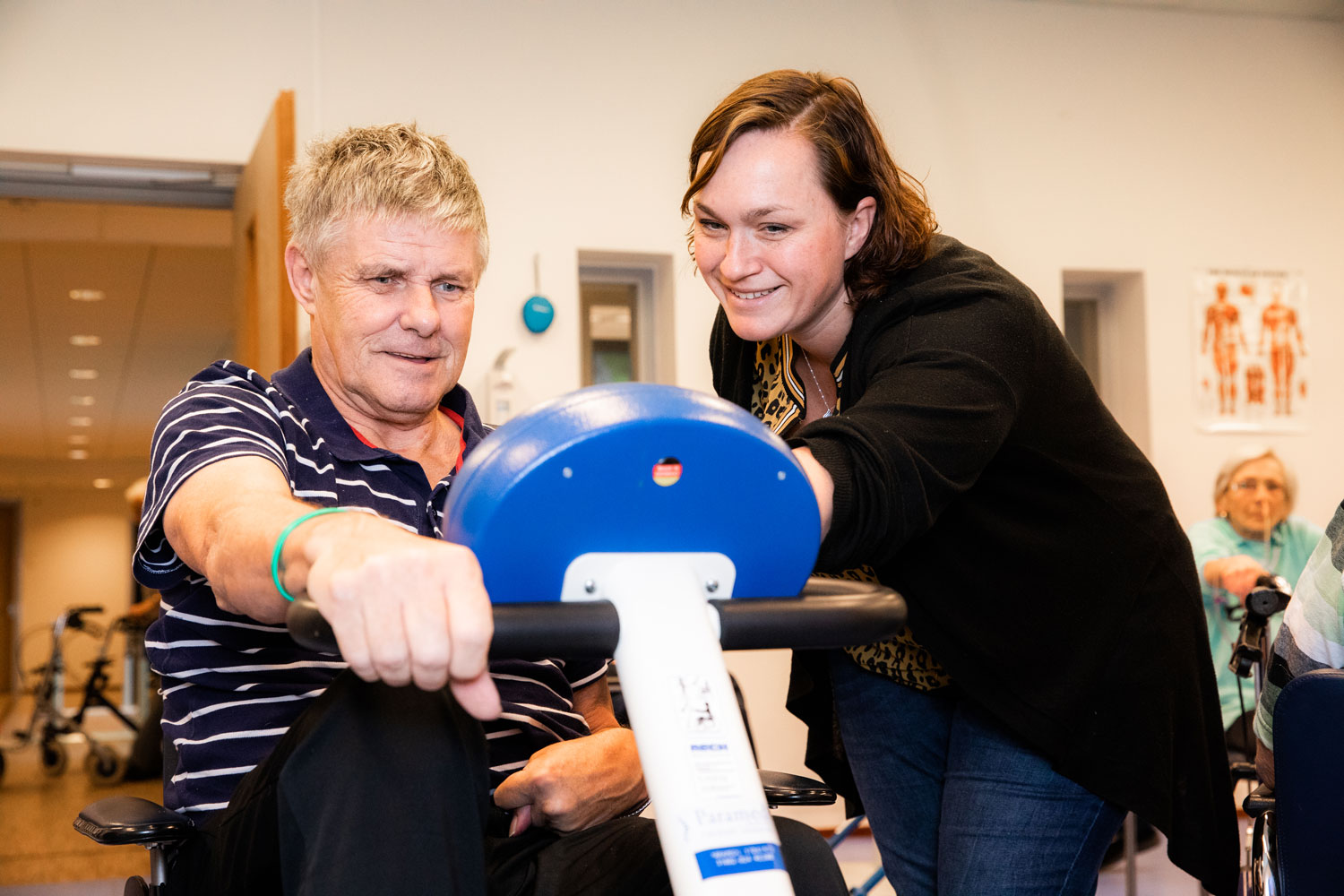Current research
MASQUE2
Validation and implementation of a wearable sensor system in clothing to recognize early signals of stress in people with dementia and people with intellectual disabilities.
Read moreSupporting care with an Emotion Intelligent Care Robot
With the increasing labour shortages, an ageing population and more complex health care, digitization and technology are necessary to be able to continue to provide high-quality care. Together with residents, family, and professional caregivers, we are going to develop an emotion-intelligent robot that can help healthcare professionals provide person-oriented care. Care is and will always be carried out by people and that is why the human dimension is paramount in this project.
Read moreEAGER-2-TRAIN
EAGER -2-TRAIN investigates the usability, feasibility, and effectiveness of mobile apps or mHealth integrated into blended care, used by older adults who are recovering from an acute event.
Read moreEAGER-2-SEE – eHealth in Geriatric Rehabilitation to improve SElfmanagEment
The research goal of this project is to chart in which way we can support and promote self-management of older individuals with chronic diseases and/or permanent disability in geriatric rehabilitation (GR) with help of eHealth (digital care). We strive to develop at least two usable, feasible, and potentially effective eHealth applications that can be used in GR.
Read moreEAGER@HOME, eHealth in Geriatric Rehabilitation at HOME
Research to the applicability of eHealth to improve geriatric rehabilitation at home with the ultimate goal of durable improvement of the participation of the patient.
Read moreEAGER-2-SENSE
At present there is no structural measurement of outcomes within geriatric rehabilitation in the Netherlands. Measurements are being conducted (mostly disease specific), but the added value to the total rehabilitation process of a patient is limited. The University Network for the Care sector South Holland (UNC-ZH) has initiated the compilation of a generic set of basic measuring instruments for a quick and full assessment of the client. The main domains measured are function and quality of life, but also include the disorder.
Read moreEAGER
eHealth in geriatric rehabilitation (GR) is still in the early stages, and little is known about its scientific effectiveness. It is often difficult for professionals to assess which eHealth applications could be useful for their patients. In addition, the range of applications is so extensive that people often cannot choose. In short, the possibilities regarding eHealth in GR are growing, but developments are currently lagging behind. The aim of this line of research is therefore to contribute to the scientific basis of this subject, and also to support GR practice in making choices and successfully implementing eHealth.
Read more
